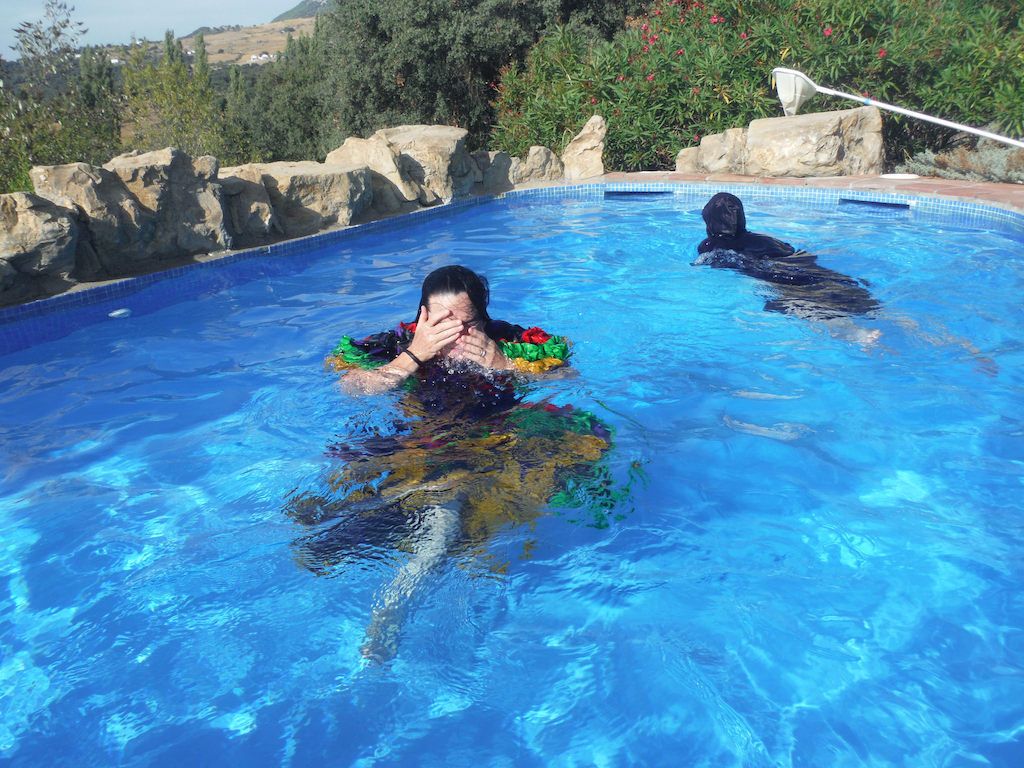
This tweet inspired me to write up this post:
Key point of piece : With signals of authority and tone erased from our information environment, we have a wide, systemic crisis in news . pic.twitter.com/TfC9p0FafL
— emily bell (@emilybell) October 29, 2017
This is an apt description of the problem of modern “content.” Journalists are now lined up next to native advertising partners. Ads often take on more signals of authority than researched pieces. We once were able to distinguish between all of this, but as we have blurred the lines, we have empowered those who want to bamboozle us (Russia?) while disempowering our most thoughtful writers and researchers.
While a lot of the focus in the media the past few months has been around Facebook, Twitter, Google, and other tech giants, I think the real fault lies in ourselves. We are the ones who don’t seek out high-quality information, or ensure that the content we read isn’t garbage. We are the ones who blindly read native advertising even though our tingling truth filter is letting us know that we are being led on. Sure, the internet has made it harder to know who is smart and who is secretly a dog on the Internet, but it isn’t that hard to verify this stuff.
Here are the strategies to inoculate against bad content:
- Stop reading brainjunk - always run through a loop before clicking a link and reading an article. Is this publication legitimate? Who is the author? What is their background on the topic? Do they seem to have the right qualifications to write this article? Have they written something before? Avoid unsigned articles — everything is written by someone, and there is no good reason why you shouldn’t know who that someone is. Also do this before sharing something on Facebook and Twitter. This sounds like a lot of overhead, but at least on a laptop, it takes about 30-40 seconds, and also has the benefit of giving me a lot of meta-information about what I am about to read. It’s amazing how much time I save by getting rid of brainjunk, so there is a great efficiency argument too.
- Read “critically” — everyone has an agenda. Everyone has a bias. So think deeply about what an author is arguing. And if something that you have read is important enough, seek out alternative sources for it. Pairing an article with its polar opposite can massively help reduce misinformation and can often place the most interesting issues in strong relief. Break your own feeds on Facebook and Twitter as well to make sure you don’t dive too deep into a single echo chamber.
- Don’t read emotionally — emotions are important vehicles for engaging us with stories. That said, more and more content today is designed to elicit strong emotional reactions, particularly negative emotions such as outrage, disgust, etc. in order to increase the performance of an article. Realize that you are being purposely triggered, and inoculate yourself to it. I have found that I can’t read entire classes of articles because I no longer have the ability to read pieces purposely trying to influence my emotions.
- Long-form is better than short-form — every challenge in the world is deeply complicated. There is never an easy answer to challenges like North Korea, or housing prices in California, or Russian election collusion. When you read 300 word articles about these topics, they provide small windows on a massive problem. That sort of massive reductionism just isn’t very helpful in doing anything about these challenges. Instead of reading 5-15 short articles about a topic, try to seek out 1-2 longer-form articles about them. The extra space provides writers with more time to dive into the nuance and grapple with the complexity of these problems. At least for me, it is the complexity that is most interesting, and so short solutions just aren’t really that interesting to read.
- Avoid ads like the plague — no one is immune to advertising. The world’s largest companies aren’t spending hundreds of billions of dollars per year on advertising because it doesn’t work. Even a 30 second pre-roll video ad is going to cause you to change your opinion about something, even if it is just to engender a positive emotion around a brand. If you want to break from the content pee pool, take every measure necessary to avoid ads. Use adblockers, pay for content, just don’t read articles on some sites. Protect yourself.
The internet has been extraordinary for lowering barriers that prevented people from communicating in a more democratic fashion. But the loss of experts is not something to celebrate. There are people with more knowledge than each of us on every topic in the world. Trust in their ability to lead you to insight and thinking. Ultimately, we are the readers, and we have the power to be influenced or not. Our reading diet is in our hands.
Photo by felizfeliz used under Creative Commons.